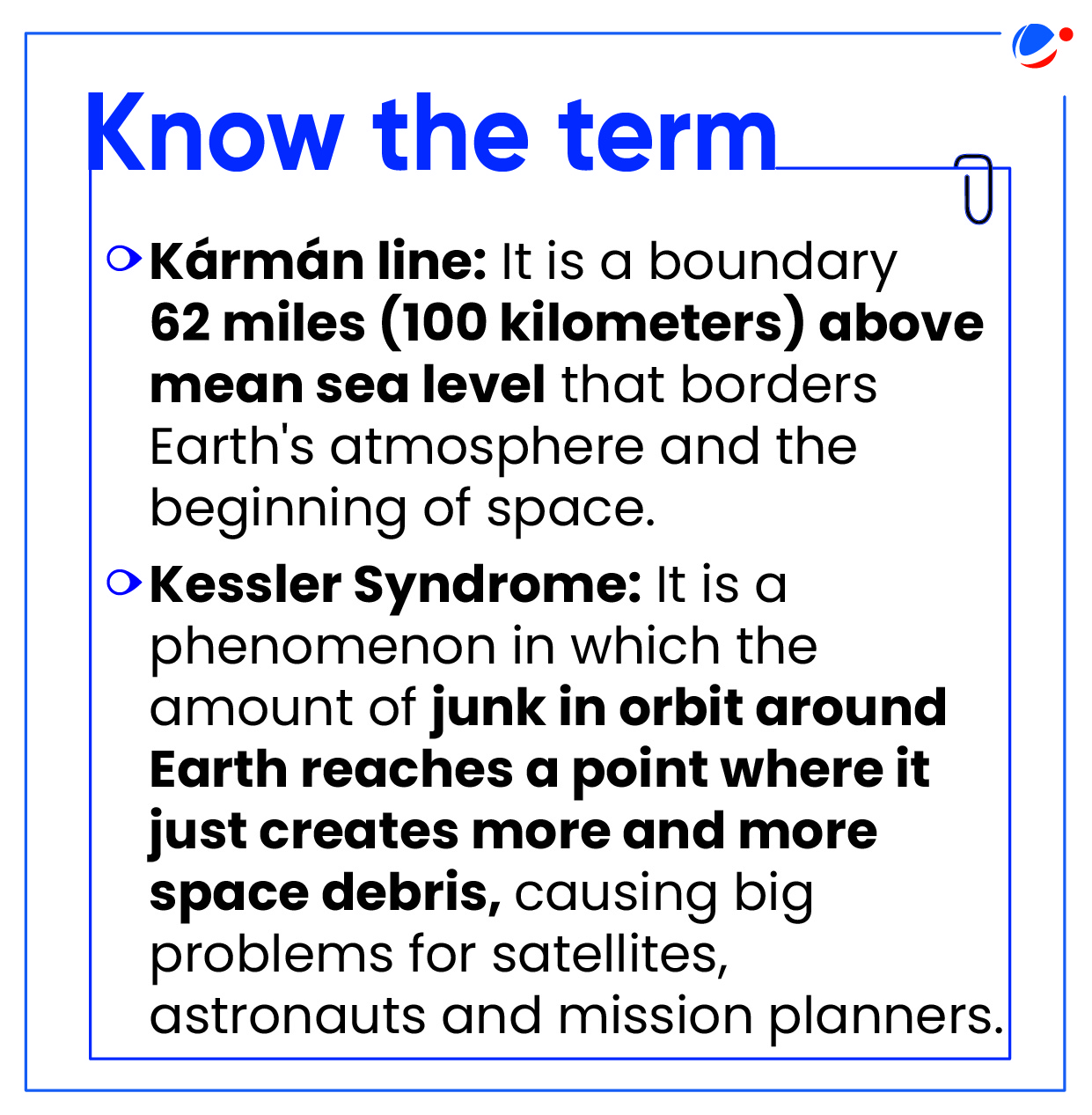Why in the news?
Space startup Blue Origin has announced that Gopi Thotakura will be part of its New Shepard's 25th Mission (NS-25 mission).

What is Space Tourism?
- Space tourism is the commercial practice of sending private individuals to space for recreational, adventure, or leisure purposes.
- At present, it is in a nascent stage. Companies like Virgin Galactic, SpaceX are making efforts to promote space tourism.
- The global space tourism market size is estimated at USD 851.4 million in 2023.
- Types:
- Suborbital: In it, passengers are taken between 50 and 70 miles above Earth (crossing the Kármán line and back).
- Orbital: In it, passengers are taken significantly above the Kármán line. Passengers may spend several days or weeks in the space.
- Other: Lunar Space Tourism, Interplanetary Tourism etc.
- India: Currently, there is not much endeavour on space tourism in India.
- However, the possible success of India's maiden human spaceflight programme 'Gaganyaan' may lay down the foundation of space tourism in the country.

Challenges associated with Space Tourism
- High Costs: Currently, the cost of flights is quite high. These costs are further increased by the need for specialized training and health checks for the passengers.
- It requires building specific spacecraft which provide adequate facilities to the passengers ranging from food to medical services.
- Limited Market Demand: The potential market for space tourism is comprised mainly of wealthy individuals willing to pay a high price for a once-in-a-lifetime experience.
- Rights and obligations: Whether the passengers should be granted a status similar to that of astronauts. This question could have a considerable impact on passenger rights and obligations, including the associated liabilities.
- Safety Concern: Due to the involvement of complex technological set-up and mechanism the risk of failure and explosion is quite high during launch and re-entry.
- E.g., Death of Kalpana Chawla due to the failure of STS-107 Columbia Mission.
- Lack of Regulation: Currently, there is no specific treaty to deal with issues related to space tourism.
- Space Debris: There is inherent fear that space debris will increase due to potential collision of rockets with satellites. It can aggravate the Kessler syndrome.
Way Forward
To encourage the development of Space Tourism in India, several steps would have to be taken from developing a global standard (like the Outer Space Treaty (1967)) to ironing out passenger challenges such as safety and application of rights. Additionally, research should be encouraged towards sustainable technology, in order minimize the environmental impact of Space Tourism and the issue of Space debris.
Initiatives which could pave way for Space Tourism in India
|



